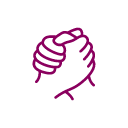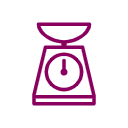Marijuana Facts
Marijuana Facts
Some women use marijuana to ease common side effects of pregnancy, including nausea or trouble sleeping. However, there is no safe time for marijuana use in pregnancy – not even a little bit. If you experience nausea, have trouble sleeping, or other side effects, your doctor can help you find a safe medication or other ways that will work more effectively than marijuana.
The safest choice is to avoid all types of marijuana at all times when pregnant or planning a pregnancy.
More Facts about Marijuana Use and Pregnancy
- Using marijuana is just like cigarette smoking. It can have a large impact on baby’s growth, cause preterm labor, anemia, or admission to the hospital. Marijuana use can also lead to behavioral problems in babies and young children.
- Marijuana can affect your baby’s brain development. Using weed during pregnancy doesn’t cause birth defects like cleft lip or palate in the same way alcohol use does, but it does have immediate and long-term health effects on kids. Immediately, prenatal marijuana use effects fetal growth and development and increases the chances of having a low-weight baby. This means babies are smaller because they are not growing in the womb. Over time – low birth weight babies are more likely to have health challenges through childhood and adulthood including increased risk for Type 2 diabetes, hypertension and cardiovascular disease. As babies grow and start school, learning problems appear. Several well-researched studies highlight problems with verbal skills, memory and problem-solving skills as a child ages. They miss important developmental milestones.
- Just because marijuana is natural doesn’t mean it’s safe. Just because something is natural, it does not mean it is safe for use during pregnancy. Anything that has a strong effect on mood, a health condition, or a symptom has risks. Marijuana is not FDA approved for use during pregnancy.
Studies show that marijuana use during pregnancy may be harmful to a baby’s health and cause a variety of problems, including:

Fetal growth restriction (when a baby doesn’t gain the appropriate amount of weight before birth).

A greater risk of stillbirth

Preterm birth (being born before 37 weeks of gestation)

Low birth weight

Long-term brain development issues affecting memory, learning, and behavior
- Medical marijuana is never prescribed during pregnancy. It is just like any other medication you are prescribed outside of pregnancy: some medications are not safe during pregnancy. Your doctor can help you find a medication safe for use during pregnancy.
- Doctors don’t recommend using CBD oil in any dose while pregnant. CBD oil has the same characteristics as marijuana without the high. Because it is a relatively new substance, we don’t know what the effects are on an unborn child or baby.
- Will I get in trouble if I tell my doctor I use marijuana (THC products)? Many pregnant people are afraid they will be judged and worry it will get them in trouble if they tell their healthcare provider they use marijuana or THC products. It’s true, healthcare providers like everyone else in NH, must report a situation where a child is unsafe. However, using substances during pregnancy does not automatically mandate a call to the Division of Children, Youth and Families. Healthcare providers only call when they think a child’s safety is a concern. If you are concerned – ask your doctor how they handle this situation during your prenatal visits and when you deliver your baby. Make an informed decision before you share information about your substance use.

The bottom line: marijuana isn’t safe for you and your baby while you are pregnant.
Quitting marijuana is just like anything else you may have tried to stop: it’s hard at first, but there are tools and resources to support your journey. First, contact your healthcare provider. Your provider can help you create a Plan of Safe Care to help you quit using.
For support, assistance and resources, call 2-1-1 NH, the statewide portal which connects New Hampshire residents to the most up-to date resources, including family support and addiction related resources. 2-1-1 NH is staffed by specially trained Information and Referral Specialists to help you navigate a plan to reduce your harm and begin quitting for good.
